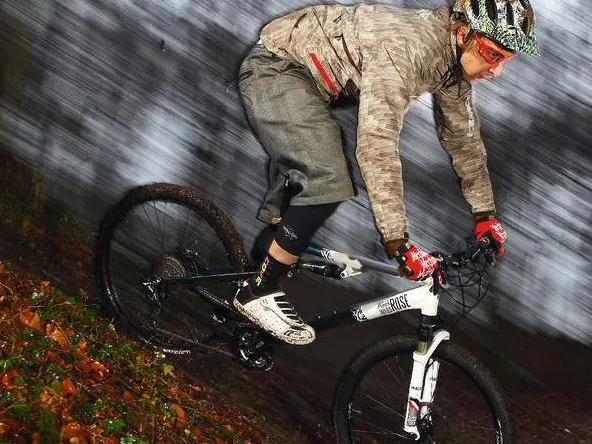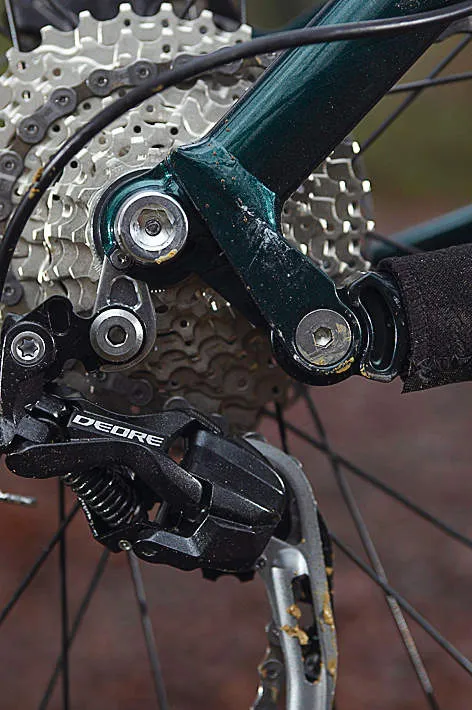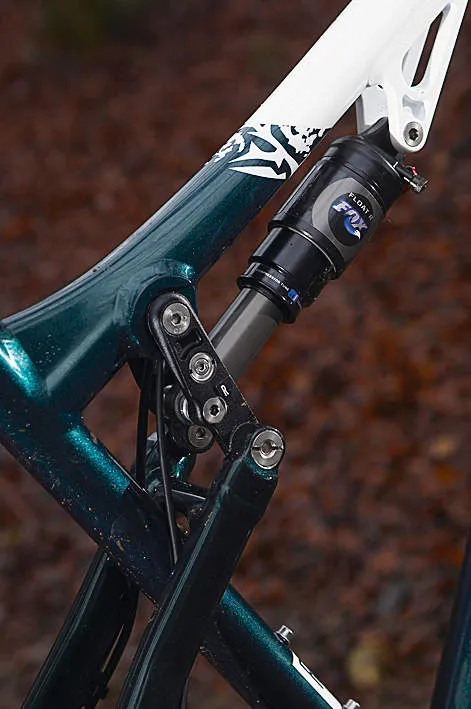From the Beef Cake, aimed at the downhill scene, to the cross-country race-inspired Pyscho Path, it’s clear that German bike retail giants Rose intend to leave no niche – or unconventional name – unexplored. The Jabba Wood, with 120mm (4.7in) of air-sprung travel at each end, slots neatly into the ‘do anything, go anywhere’ category of bikes.
Ride & handling: Sorted high-speed handling but shock tune hampers small bump performance
Rose’s designers have clearly done their homework. The result is a bike that rivals the best for handling, with a potent and effective combination of roomy top tube and short stem that neatly blends the best of all worlds.
There’s room to get stretched out on long climbs and fireroad drags, but with a light front end, a rock-averting wheel flick is just a dropped shoulder away. Nice. Decent all-up weight and a light, fast-rolling wheelset complement the Jabba Wood’s sorted geometry, giving it a turn of speed to rival many shorter-travel bikes.
Late brakers and riders who like to stay on the gas in the rough will need to watch out for grounded pedals, courtesy of an averagely tall bottom bracket and a rear shock that can get bogged down, but that’s nit-picking.
Wind the Rose up to speed, point it down a rocky trail and see if you don’t end up wearing a big grin at the bottom. It’s a shame, then, that all this high-speed competence is spoiled at lower speeds by a constipated rear shock.
The high compression damping tune is very effective at filtering out pedal-induced bobbing. But combined with dropped chainstay pivots, it’s too effective, robbing the bike of most of its small bump compliance and tending to bog the shock down on successive hits.
Suspension cynics will love it – and it doesn’t hamper high speed riding – but we’ve never been fans of hobbling rear end performance by ramping up compression damping. If you hate a bobbing rear end it’s worth a look, but we think there are better options.
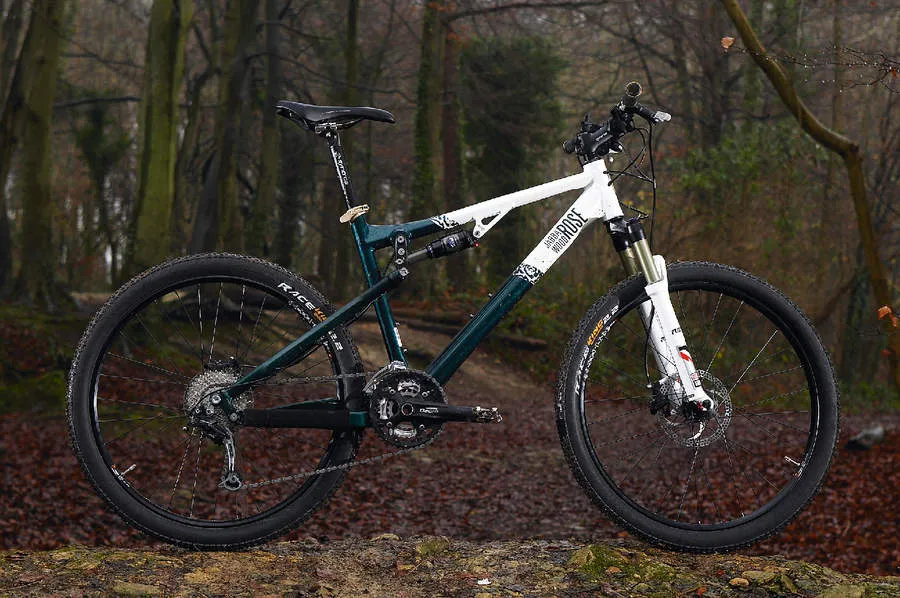
Frame: Clean lines plus good attention to detail
Unlike many 120mm (4.7in) travel bikes, which tend to lean towards the chunkier end of cycle design, the Jabba Wood combines boulder-swallowing quantities of wheel movement with a lean look that won’t frighten the horses.
Subtle hydroforming endows top and down tubes with extra rigidity where it’s needed and lower weight where it’s not, while the four-bar rear end and top tube mounted shock and linkage keep the suspension side of things relatively neat and tidy. If you like your full-sussers to look like hardtails with a spring at the back, the Jabba Wood should be right up your bridleway.
The details have obviously been sweated over too. High quality pivot bearings – including a needle bearing in the main pivot – should ensure smooth and long-lasting suspension action. Asymmetric chainstays and bridgeless seatstays provide plenty of clearance for grungy UK trail conditions and a large section of clear plastic protects the underside of the down tube from dings and scratches.
The internal cable routing is undeniably clean-looking but potentially a whole lot more fiddly to sort out when it comes to service time, and the slotless rear dropouts add a hefty dose of rear end stiffness at the expense of more fiddly wheel removal and fitting.
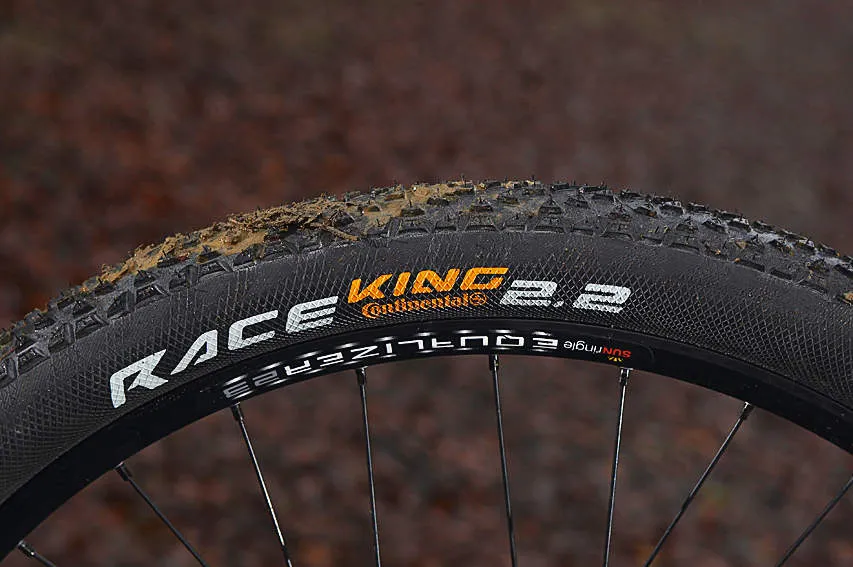
Equipment: Great spec, including light wheelset and lockable fork
Full marks to Rose for finding room in the budget for air shocks both front and rear. Fox’s Float R would be a decent match for the RockShox Recon SL fork that’s plugged into the head tube if it wasn't for the high – and non-adjustable – compression damping tune that hampers performance. The fork features a bar-mounted lockout to keep sprinters, big gear mashers and the bob-obsessed happy.
A full set of Shimano transmission components – right down to XT hubs – is a rare and welcome sight at this price. The rest of the bike is equally well outfitted, from the lock-on grips and Selle Italia seat to the Syncros finishing kit.
The wheels are notably light for a 120mm (4.7in) bike in this price bracket too. Much of the weight saving appears to be in the Continental Race King tyres, which don’t offer the best mud-plugging performance and appear to be a little more puncture-prone than some of the more substantial alternatives.
